
Dave Clark: “I was doing film extra work and stunt work, and the boys were all working in offices or in factories.”
The DC5 bandleader, songwriter and producer talks about the song that knocked The Beatles off the top of the charts
In the early 60s, five working-class lads from Tottenham, North London came together, forming The Dave Clark Five (also known as The DC5) – a group that would go on to shape the course of popular music and sell over 100 million records along the way. Founded by one of the UK’s most prolific and celebrated musicians, songwriters and producers Dave Clark, the band spearheaded the British invasion of the US, becoming the first UK band to tour there and scoring an unprecedented 15 consecutive Top 20 hits, more than any other act bar The Beatles.
Glad All Over was their first No 1 hit in the UK, famously knocking The Beatles off the top spot in 1964 and went on to sell over two-and-a-half million copies. With its unison group vocals, sing-a-long chorus, and stomping ‘air hammer’ beat, the song was adopted by Crystal Palace Football Club, and is still played at various other stadiums across the country.
Hearing the news that The DC5 were about to release their first greatest hits album in 10 years, we caught up with the main man to hear the story behind their chart-topping, multi-million-selling terrace anthem…

Released: 15 November 1963
Artist: Dave Clark Five
Label: Columbia/Epic
Songwriters: Dave Clark, Mike Smith, Ron Ryan
Producer: Dave Clark
UK chart position: 1
US chart position: 6
“Before we really made it, we started at the clubs where they used to throw beer cans at you! It made you better. Then we ended up at the American military bases around England, and that’s what got me into American music because we’d hear all these songs on their jukeboxes. You play for four hours, have a break in the middle and they’d put the jukebox on with all these songs you’d never hear in the UK. It’s funny, a lot of them we recorded later – Do You Love Me, You Got What It Takes, Over And Over, Little Bitty Pretty One… y’know all those great songs. And they used to say to us, ‘Can you play that one next week when you come?’ And we’d say, ‘Well, give us a copy of the record and we’ll learn it.’
“Glad All Over was something that I learned on the clubs, and especially at The Royal in Tottenham: audience participation. It’s very much like a football-type of chant, where people could enjoy it. That’s how we got our audiences. I used to do a thing – I think it was by The Routers – a song called Half Time, it was an instrumental, but in the middle, you’d just stop and play the drums with a stamping type thing, and get the audience stamping and we’d get all the lights going along. We didn’t have any money in those days but I’d pay the guy a fiver-a-week to switch all the lights on and off! And that’s how it got that sort of sound. We got a great response with it. I’ve always believed that a catch is something you’d say normally. It’s very much a thing that you’d remember, and that’s how Mike and I worked on that and that’s how it started.
“I had a little old Tandberg tape recorder and we would routine stuff before – we’d work on it. I’m a firm believer that I treated the studio as something special. Also we didn’t have any money in those days, so when you go in you’re geared up to do something. We routined it on this one-track recorder, so we knew exactly what we were going to do, and then you’ve got to make it work in the studio.

The Dave Clark Five: “It’s the imperfections that make perfection.”
“I was doing film extra work and stunt work, and the boys were all working in offices or in factories. By then we were doing The Royal and some great gigs, so it was very exciting, but it’s all the little intricacies that you do. It’s like when we recorded Glad All Over, on the stomps, the guitars are doubling up, which you never heard when the vinyl record came out. When we went onto CD a decade or so later, that was the first time I heard it!
“I was writing songs and then you’d go up on the tube to Denmark Street and try to get publishers to publish them, and what they used to do was say, ‘If you play our songs, we’ll let you have some free studio time. Well, the studio in those days was Regent Sounds – it was one track and for soundproofing they had egg boxes on the ceiling! So that’s how it all started. Then I had to do a demo and we did it a Lansdowne Studios and that was the first major studio we’d got into. I loved the sound and that’s why I recorded at Lansdowne later on. But if you surround yourself with the best people… I had a great engineer, Adrian Kerridge, who was magnificent.
“I don’t think there are any rules or regulations – I learned that – whereas Mike Smith, who was a close mate, was a classically trained pianist. I can’t read music, but when we were putting something down and I said, ‘That’s great,’ he said, ‘David, musically it’s not right,’ and I said, ‘But Mike, it sounds great.’ And that actually worked for the two of us. You mustn’t just lock into what is the standard thing. I came up with the hook, ‘I’m feeling glad all over’, but it was 50/50 really. When you’re young, you’re talking about how you feel at that moment in time. It’s nothing sophisticated, but to me our music was to have fun with, to enjoy – not any message. That’s always been my feeling: it makes you feel good.

The Dave Clark Five: “People stamped on the ‘bom-bom’ and it cracked ballroom floors, and it got banned by Mecca.”
“It did feel easy. The only trouble in those days, looking back, you only had four-track machinery, which means technically you can only use three tracks – the fourth track you use to bounce down. A couple of years later, when stereo was becoming popular, we went to mix down Glad… onto stereo and, to me, it was never as good. The studio at Lansdowne – it was a fabulous place, but it’s not there now – had forty-foot ceilings with a staircase that went to the top and a lift that came down, and the echo chamber was the stairwell! You got an amazing sound; the only downside was if someone decided not to use the lift and walked down in the middle of a take, you had to go back and re-do it! When we went back two years to mix down onto stereo, they didn’t use that and it never had the magic. So I went back to mono, and it was years later that Phil Spector made the statement that he preferred mono. It’s the imperfections that make perfection. I’ll always argue with people that life is not perfect. With other people in the 80s and 90s, I felt some of it became clinical.
“With Glad… I thought it would be a hit. We did a B-side called I Know You, which the record company wanted [as the A-side], but I was independent so I had the final say. The amazing thing was, we did Ready Steady Go! and they said, ‘Let’s play both sides and get the audience to write in which side they prefer.’ So they did that and more people wanted I Know You. But I thought, ‘No, it’s got to be Glad All Over.’
“We were selling 130,000 records a day! We had to sell over a million to knock them off [The Beatles]. That was the reason there was so much excitement. Also, Paul McCartney said they were the ‘Liverpool Sound’ and we were the ‘Tottenham Sound’, so it was all to do with football in those days. I was thrilled [to hear it played at Crystal Palace] but the one disappointment in my career is that it wasn’t Spurs. I was born in Tottenham and, when we played The Royal, all the Spurs players would come to our gig on a Saturday evening. In fact, my company is called Spurs Music Publishing. Of course, in those days you didn’t have to get permission – you just played it and people got the PRS royalties.
“Glad All Over was inspired by football, in a way. It was something you could use on the terraces and made you feel good. In fact, we had a lot of problems when it first came out because people stamped on the ‘bom-bom’ and it cracked ballroom floors, and it got banned by Mecca and all those places. But that was what it was all about.”
Interview: Aaron Slater
The Dave Clark Five’s new best-of album All The Hits is out now. For more info, head to musicglue.com/the-dave-clark-five/
Read more ‘How I wrote’ features here


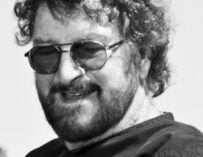
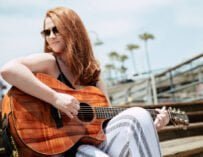
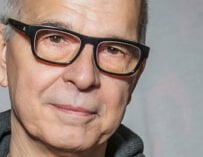



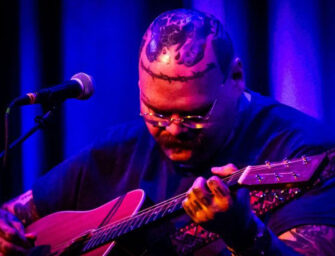
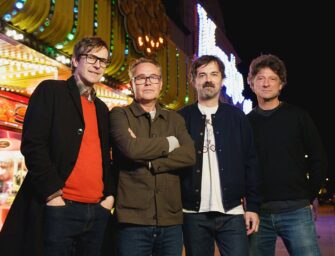

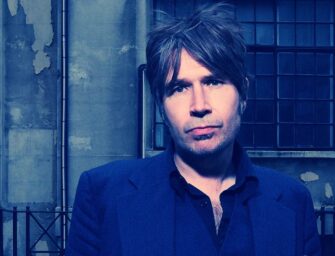























Related Articles